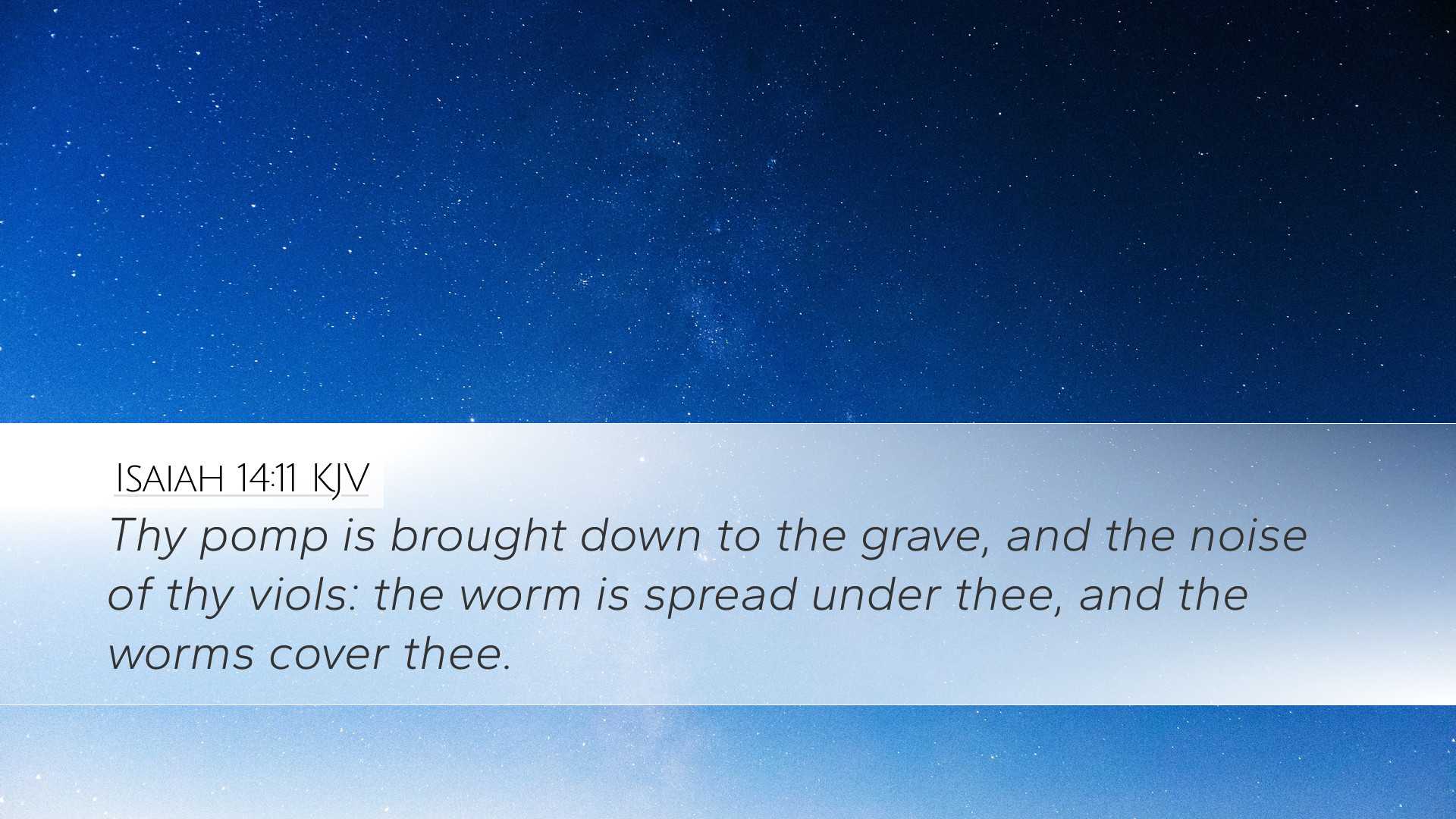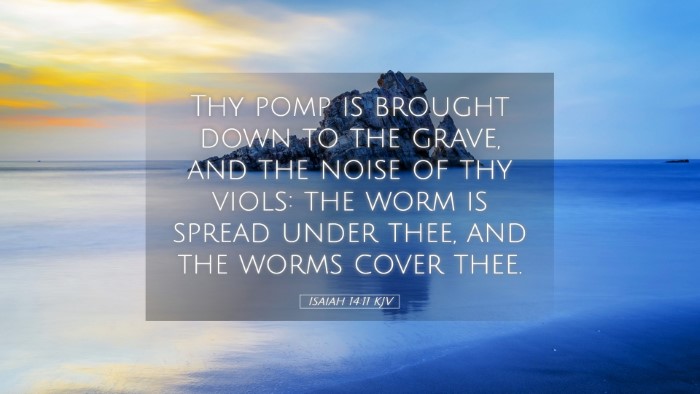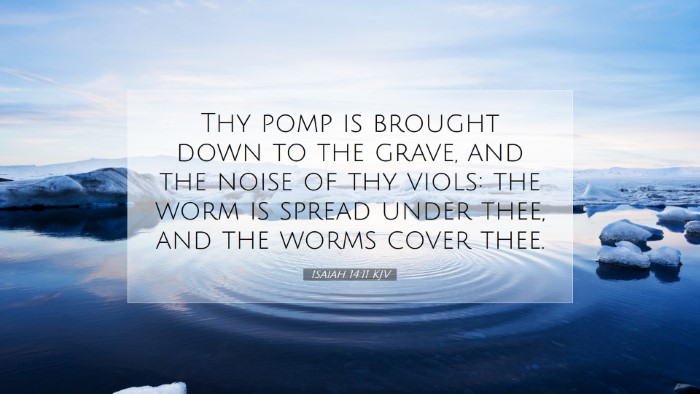Commentary on Isaiah 14:11
Isaiah 14:11 states, "Your pomp is brought down to the grave, and the noise of your viols: the worm is spread under you, and the worms cover you." This verse is a poignant reflection on the fate of the proud and powerful, particularly in the context of the fall of Babylon. It highlights themes of judgment, humility, and the transient nature of earthly glory. Below, we provide a synthesis of insights from several public domain commentaries, aiming to enhance understanding for pastors, students, theologians, and Bible scholars.
Contextual Background
The preceding chapter deals significantly with the fall of Babylon and the lamentation over its destruction. Isaiah prophesies that God will bring down the proud oppressor, a declaration resonating through biblical history as a reminder of divine justice.
Commentary Insights
1. Matthew Henry’s Perspective
Matthew Henry emphasizes the stark contrast between the arrogance of the mighty and the inevitable humility that death brings. He asserts that:
- Pomp and Vanity: The verse highlights the pomp associated with the Babylonians, which is now met with humiliating demise.
- Universal Mortality: The 'grave' symbolizes the finality of death that embraces all, regardless of status; the proud are reduced to the same fate as the humble.
- Destructive Impact of Sin: Henry notes the 'noise of viols' as a representation of worldly pleasures that ultimately lead to despair.
Overall, Henry's perspective serves as a cautionary reflection on the fleeting nature of worldly power and the certainty of divine judgment.
2. Albert Barnes' Analysis
Albert Barnes provides an in-depth examination of the language and imagery employed in this verse. He clarifies that:
- “The Worm” Imagery: The image of worms signifies decay, suggesting how physical bodies of the mighty who once ruled will face corruption in death.
- Auditory Imagery: The reference to 'viol' suggests the typical celebration music of the Babylonians, which is now turned to silence indicating a reversal of fortunes.
- Judgment on Pride: Barnes emphasizes the notion that Babylon’s ultimate end serves as a lesson against pride and self-exaltation.
Barnes invites readers to view this verse as a reflective moment on the emptiness of earthly accolades when faced with eternal truths.
3. Adam Clarke’s Commentary
Adam Clarke expands on the various aspects of the verse by dissecting the implications of each term used. According to Clarke:
- Pomp as a Futile Glory: Clarke highlights that the 'pomp' mentioned is reminiscent of temporary triumphs that are dust in the face of mortality.
- The Significance of “Worms”: This literal imagery is a profound statement regarding what happens to the proud in death. Clarke suggests that it evokes a graphic reality of decomposition, presenting a humbling reminder.
- God’s Sovereignty: Clarke observes that the complete nullification of Babylon's glory speaks to the sovereignty of God over nations and empires.
Through Clarke’s analysis, readers are encouraged to reflect on the spiritual reality behind physical death and the futility of earthly power.
Theological Implications
This passage serves as a stark reminder to believers about the nature of pride and the ultimate destiny that awaits all humanity. The collective insights from these scholars highlight key theological reflections:
- Humility Before God: Individuals and nations are called to recognize their dependence on God and remain humble before His majesty.
- Judgment and Hope: While the verse outlines judgment for the proud, it simultaneously offers hope for the faithful who trust in God's ways.
- Transience of Earthly Power: A repeated theme among scholars is the passing nature of earthly honors and the eternal significance of one’s relationship with God.
Conclusion
Isaiah 14:11 encapsulates a profound and timeless message regarding the fate of the proud and the nature of true glory. The reflections offered by Matthew Henry, Albert Barnes, and Adam Clarke provide valuable insights that deepen the understanding of this passage. For pastors, students, and scholars, engaging with these insights can foster a richer theological conversation about pride, mortality, and the enduring sovereignty of God over the affairs of humanity.


